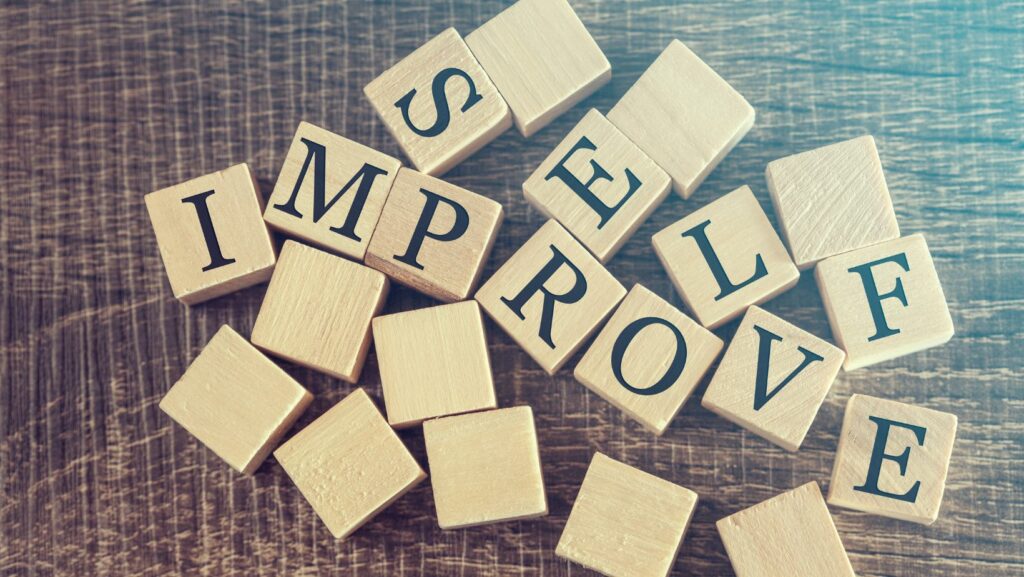Key Takeaways
- Focus on Key Areas: Identify specific domains such as emotional intelligence, time management, health and wellness, communication skills, and adaptability for targeted self-improvement.
- Emphasize Personal Development: Boost self-awareness, regulate emotions, and set achievable goals to foster personal growth and resilience.
- Prioritize Professional Growth: Continuously acquire new skills, build networks, and pursue certifications to enhance career prospects and stay relevant in the job market.
- Enhance Mental and Emotional Well-Being: Practice mindfulness and develop emotional intelligence to improve stress management and relationship building.
- Invest in Physical Health: Maintain a balanced diet and regular exercise routine to increase energy levels, improve focus, and support overall well-being.
- Cultivate Strong Relationships: Hone communication and conflict resolution skills to build deeper connections and foster a supportive social network.
In a fast-paced world where change is the only constant, self-improvement has become essential for personal growth and fulfillment. People often seek ways to enhance their skills, boost their confidence, and improve their overall well-being. Identifying key areas for self-improvement can lead to transformative experiences that enrich both personal and professional lives.
From mastering new skills to cultivating emotional intelligence, the journey of self-improvement is both rewarding and challenging. It’s not just about setting goals; it’s about fostering a mindset that embraces growth and resilience. By focusing on specific areas, individuals can unlock their potential and create a more balanced and fulfilling life.
Understanding Self Improvement
Self-improvement refers to a proactive approach individuals take to enhance various aspects of their lives. It encompasses activities aimed at developing skills, boosting knowledge, and fostering emotional and physical well-being. Individuals often pursue self-improvement to achieve personal goals, foster resilience, and cultivate a growth mindset.
Self-improvement lies in recognizing weaknesses, setting achievable goals, and seeking continuous development. Clarity about one’s strengths and areas for improvement guides efforts in personal and professional contexts. Common areas of self-improvement include:
- Emotional Intelligence: Enhancing the ability to understand and manage emotions increases interpersonal effectiveness. This skill improves communication and relationship-building.
- Time Management: Mastering the art of prioritizing tasks leads to increased productivity. Effective time management reduces stress and creates more free time.
- Health and Wellness: Focusing on physical fitness, nutrition, and mental health contributes to a better quality of life. Regular exercise and healthy eating habits foster energy and resilience.
- Communication Skills: Developing verbal and non-verbal communication abilities enhances interpersonal relations. Strong communication is essential for teamwork and leadership.
- Adaptability: Cultivating flexibility in the face of change aids in resilience and problem-solving. Adaptability enables individuals to thrive in uncertain environments.
By recognizing these areas, individuals can formulate plans for improvement and measure progress. Engaging in self-improvement activities fosters lifelong learning and personal fulfillment.
Areas of Self Improvement

Self-improvement encompasses various domains, allowing individuals to cultivate skills and enhance their lives. Focusing on personal and professional development fosters growth and adaptability.
Personal Development
Personal development emphasizes emotional intelligence, self-awareness, and relationship management. Individuals can enhance their emotional regulation, build resilience, and improve their interactions with others. Activities like mindfulness meditation, journaling, and engaging in constructive feedback facilitate self-reflection and promote personal growth.
Key aspects of personal development include:
- Self-awareness: Assessing strengths, weaknesses, and values contributes to informed decision-making.
- Emotional intelligence: Understanding and managing emotions improves interpersonal relationships and increases empathy.
- Goal setting: Establishing clear, achievable goals fosters motivation and accountability.
Professional Growth
Professional growth focuses on acquiring skills and competencies relevant to one’s career. Individuals can boost their career trajectories by enhancing technical skills, networking, and continuing education. Engaging with mentors and attending workshops or online courses fosters professional development and adaptation in a competitive labor market.
- Skill enhancement: Gaining new technical or soft skills increases employability and job performance.
- Networking: Building professional relationships creates opportunities for collaboration and career advancement.
- Certifications: Pursuing relevant certifications demonstrates commitment to professional excellence and lifelong learning.
Mental and Emotional Well-Being
Mental and emotional well-being is crucial for overall self-improvement. This area includes practices that enhance personal growth and emotional stability through mindfulness, meditation, and emotional intelligence.
Mindfulness and Meditation
Mindfulness and meditation promote mental clarity and emotional resilience. These practices help individuals focus on the present moment, reducing stress and anxiety. Research indicates that regular mindfulness meditation can lead to lower blood pressure, improved emotional regulation, and increased overall happiness. Techniques include deep breathing, body scanning, and guided imagery. Engaging in mindfulness exercises for just 10 to 20 minutes daily can significantly enhance self-awareness and emotional balance.
Emotional Intelligence
Emotional intelligence encompasses the ability to recognize and manage one’s emotions and those of others. It involves four key components: self-awareness, self-regulation, social awareness, and relationship management. Developing emotional intelligence aids in improving communication, empathy, and conflict resolution. Studies show that individuals with high emotional intelligence experience better relationships and career success. Simple practices, such as active listening and reflective journaling, can enhance emotional intelligence, leading to more effective interactions in both personal and professional environments.
Physical Health and Fitness
Physical health and fitness play a crucial role in overall self-improvement, contributing to vitality, mental clarity, and emotional well-being. Attention to nutrition and exercise brings significant benefits in these areas.
Nutrition
Nutrition involves consuming a balanced diet rich in essential nutrients. Healthy eating supports physical health, maintains energy levels, and bolsters immune function. A focus on whole foods, such as fruits, vegetables, whole grains, lean proteins, and healthy fats promotes weight management and reduces chronic disease risk.
Specific dietary practices include:
- Hydration: Drinking adequate water aids digestion and enhances cognitive function.
- Balanced Meals: Incorporating various food groups ensures a range of vitamins and minerals.
- Mindful Eating: Paying attention to hunger cues helps avoid overeating and encourages healthier choices.
Adopting these nutritional habits creates a solid foundation for physical health and enhances the ability to engage in daily activities.
Exercise
Exercise encompasses various physical activities that improve strength, endurance, flexibility, and overall fitness. Regular movement supports cardiovascular and muscular health, reduces stress, and boosts mood through endorphin release.
Key components of an effective exercise routine include:
- Cardiovascular Workouts: Activities like running, swimming, or cycling improve heart health and increase stamina.
- Strength Training: Resistance exercises enhance muscle mass and boost metabolism, facilitating weight management.
- Flexibility Exercises: Practices such as yoga and stretching improve mobility and reduce injury risk.
Engaging in a consistent exercise routine fosters physical resilience, enhances self-esteem, and encourages a proactive approach to health.
Building Stronger Relationships
Stronger relationships hinge on effective communication and resolving conflicts constructively. By honing these skills, individuals can foster deeper connections and a more supportive network.
Communication Skills
Communication skills form the backbone of successful relationships. Developing clarity in expression, active listening, and empathy enhances interactions and fosters mutual understanding.
- Clarity in Expression: Articulating thoughts clearly reduces misunderstandings. Use straightforward language and avoid jargon.
- Active Listening: Demonstrating genuine interest in others’ perspectives builds trust. Nod and provide feedback to show engagement.
- Empathy: Understanding others’ feelings fosters emotional connections. Acknowledge their emotions and respond with compassion.
Practicing these skills in everyday conversations can lead to more meaningful interactions and stronger bonds.
Conflict Resolution
Conflict resolution is essential for maintaining healthy relationships. Addressing disagreements promptly and respectfully can strengthen connections.
- Address Issues Early: Tackle conflicts as they arise, preventing escalation. Delaying conversations can lead to resentment.
- Stay Calm: Maintain composure during discussions. Take deep breaths and focus on finding common ground.
- Seek Solutions Together: Collaborate on resolving conflicts rather than assigning blame. Encourage open dialogue to explore mutual solutions.
Implementing these strategies fosters understanding, enhances cooperation, and promotes long-lasting relationships.
Investing Time in Self-Improvement
Embracing self-improvement is essential for anyone seeking to thrive in today’s fast-paced world. By focusing on personal and professional development individuals can cultivate resilience and adaptability. This journey not only enhances skills and emotional intelligence but also fosters meaningful relationships and overall well-being.
Investing time in self-improvement leads to a more balanced life. As individuals identify their strengths and weaknesses they pave the way for continuous growth. The path may be challenging but the rewards of increased confidence and fulfillment are undeniable. Ultimately self-improvement isn’t just a personal endeavor; it’s a commitment to living a richer and more connected life.
